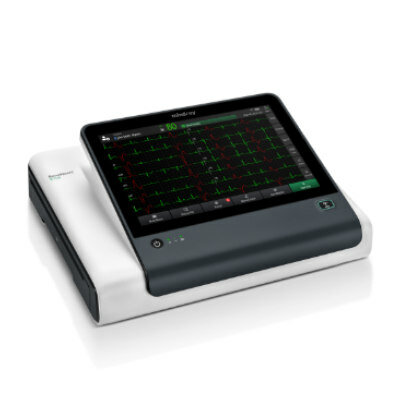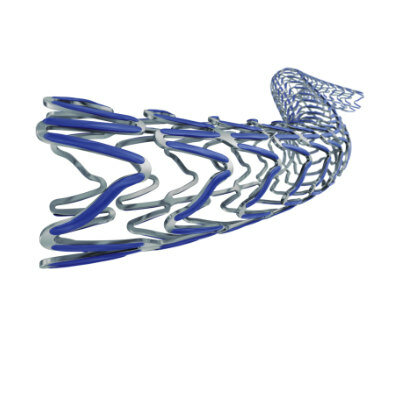Artificial Intelligence Could Challenge Role of Doctors
|
By HospiMedica International staff writers Posted on 22 Nov 2018 |
Artificial intelligence (AI) systems, which simulate human intelligence by learning, reasoning, and self-correction, have the potential to be more accurate than doctors at making diagnoses and performing surgical interventions, according to a new study.
Researchers at the Swiss Federal Institute of Technology (ETH; Zurich, Switzerland), McGill Institute for Health and Social Policy (IHSP; Montréal, Canada), and University Hospital Zürich (USZ; Switzerland) met to raise the question of whether machines will ever completely replace doctors. Their opinions were published on November 7, 2018, in BMJ.
According to Jörg Goldhahn, MD, of ETH, the answer is yes. AI has a near unlimited capacity for data processing and subsequent learning, and can do this at a speed that humans cannot match. In addition, it is not subject to the potential bias seen in human learning due to cultural influences and links with particular institutions. And while the ability to form relationships with patients is often presented as an argument in favor of human doctors, Goldhahn suggests that this may also be their Achilles heel. Trust is important to patients, but machines and systems can be more trustworthy than humans if they can be regarded as unbiased and without conflicts of interest.
“The notion that today's physicians could approximate this knowledge by keeping abreast of current medical research while maintaining close contacts with their patients is an illusion, not least because of the sheer volume of data,” concluded Dr. Goldhahn. “Introducing AI-driven systems could be cheaper than hiring and training new staff. They are also universally available, and can even monitor patients remotely. Doctors as we now know them will become obsolete eventually.”
But co-authors Vanessa Rampton, PhD, Branco Weiss fellow at IHSP, and Professor Giatgen Spinas, MD, of University Hospital Zürich, disagree. They maintain that machines will never replace doctors entirely, because the inter-relational quality of the doctor-patient relationship is vital and cannot be replicated. While they concur that AI will increasingly be able to perform tasks that humans do today, doctors are better at dealing with the patient as a whole person. Doctors can relate to the patient as a fellow human being, building a relationship that takes into account an individual patient's preferences, values, and social circumstances.
“Computers aren't able to care for patients in the sense of showing devotion or concern for the other as a person, because they are not people and do not care about anything. Sophisticated robots might show empathy as a matter of form, just as humans might behave nicely in social situations, yet remain emotionally disengaged because they are only performing a social role,” said Dr. Rampton and Professor Spinas. “Feeling they've been heard by someone who understands the seriousness of the problem and whom they can trust can be crucial for patients.”
“Most importantly there will be no cure for some patients; care will be about helping them have the best quality of life possible with their condition and for the longest time. Here doctors are irreplaceable. Robots cannot understand our concern with relating illness to the task of living a life,” they concluded. “As the Harvard professor Francis Peabody observed in 1927, the task of the doctor is to transform ‘that case of mitral stenosis in the second bed on the left’ into the complex problem of ‘Henry Jones, lying awake nights while he worries about his wife and children’.”
Related Links:
Swiss Federal Institute of Technology
McGill Institute for Health and Social Policy
University Hospital Zürich
Researchers at the Swiss Federal Institute of Technology (ETH; Zurich, Switzerland), McGill Institute for Health and Social Policy (IHSP; Montréal, Canada), and University Hospital Zürich (USZ; Switzerland) met to raise the question of whether machines will ever completely replace doctors. Their opinions were published on November 7, 2018, in BMJ.
According to Jörg Goldhahn, MD, of ETH, the answer is yes. AI has a near unlimited capacity for data processing and subsequent learning, and can do this at a speed that humans cannot match. In addition, it is not subject to the potential bias seen in human learning due to cultural influences and links with particular institutions. And while the ability to form relationships with patients is often presented as an argument in favor of human doctors, Goldhahn suggests that this may also be their Achilles heel. Trust is important to patients, but machines and systems can be more trustworthy than humans if they can be regarded as unbiased and without conflicts of interest.
“The notion that today's physicians could approximate this knowledge by keeping abreast of current medical research while maintaining close contacts with their patients is an illusion, not least because of the sheer volume of data,” concluded Dr. Goldhahn. “Introducing AI-driven systems could be cheaper than hiring and training new staff. They are also universally available, and can even monitor patients remotely. Doctors as we now know them will become obsolete eventually.”
But co-authors Vanessa Rampton, PhD, Branco Weiss fellow at IHSP, and Professor Giatgen Spinas, MD, of University Hospital Zürich, disagree. They maintain that machines will never replace doctors entirely, because the inter-relational quality of the doctor-patient relationship is vital and cannot be replicated. While they concur that AI will increasingly be able to perform tasks that humans do today, doctors are better at dealing with the patient as a whole person. Doctors can relate to the patient as a fellow human being, building a relationship that takes into account an individual patient's preferences, values, and social circumstances.
“Computers aren't able to care for patients in the sense of showing devotion or concern for the other as a person, because they are not people and do not care about anything. Sophisticated robots might show empathy as a matter of form, just as humans might behave nicely in social situations, yet remain emotionally disengaged because they are only performing a social role,” said Dr. Rampton and Professor Spinas. “Feeling they've been heard by someone who understands the seriousness of the problem and whom they can trust can be crucial for patients.”
“Most importantly there will be no cure for some patients; care will be about helping them have the best quality of life possible with their condition and for the longest time. Here doctors are irreplaceable. Robots cannot understand our concern with relating illness to the task of living a life,” they concluded. “As the Harvard professor Francis Peabody observed in 1927, the task of the doctor is to transform ‘that case of mitral stenosis in the second bed on the left’ into the complex problem of ‘Henry Jones, lying awake nights while he worries about his wife and children’.”
Related Links:
Swiss Federal Institute of Technology
McGill Institute for Health and Social Policy
University Hospital Zürich
Latest Health IT News
- Printable Molecule-Selective Nanoparticles Enable Mass Production of Wearable Biosensors
- Smartwatches Could Detect Congestive Heart Failure
- Versatile Smart Patch Combines Health Monitoring and Drug Delivery
- Machine Learning Model Improves Mortality Risk Prediction for Cardiac Surgery Patients
- Strategic Collaboration to Develop and Integrate Generative AI into Healthcare
- AI-Enabled Operating Rooms Solution Helps Hospitals Maximize Utilization and Unlock Capacity
- AI Predicts Pancreatic Cancer Three Years before Diagnosis from Patients’ Medical Records
- First Fully Autonomous Generative AI Personalized Medical Authorizations System Reduces Care Delay
- Electronic Health Records May Be Key to Improving Patient Care, Study Finds
- AI Trained for Specific Vocal Biomarkers Could Accurately Predict Coronary Artery Disease
Channels
Critical Care
view channel
Ingestible Smart Capsule for Chemical Sensing in the Gut Moves Closer to Market
Intestinal gases are associated with several health conditions, including colon cancer, irritable bowel syndrome, and inflammatory bowel disease, and they have the potential to serve as crucial biomarkers... Read moreNovel Cannula Delivery System Enables Targeted Delivery of Imaging Agents and Drugs
Multiphoton microscopy has become an invaluable tool in neuroscience, allowing researchers to observe brain activity in real time with high-resolution imaging. A crucial aspect of many multiphoton microscopy... Read more
Novel Intrabronchial Method Delivers Cell Therapies in Critically Ill Patients on External Lung Support
Until now, administering cell therapies to patients on extracorporeal membrane oxygenation (ECMO)—a life-support system typically used for severe lung failure—has been nearly impossible.... Read moreSurgical Techniques
view channel
Pioneering Sutureless Coronary Bypass Technology to Eliminate Open-Chest Procedures
In patients with coronary artery disease, certain blood vessels may be narrowed or blocked, requiring a stent or a bypass (also known as diversion) to restore blood flow to the heart. Bypass surgeries... Read more
Intravascular Imaging for Guiding Stent Implantation Ensures Safer Stenting Procedures
Patients diagnosed with coronary artery disease, which is caused by plaque accumulation within the arteries leading to chest pain, shortness of breath, and potential heart attacks, frequently undergo percutaneous... Read more
World's First AI Surgical Guidance Platform Allows Surgeons to Measure Success in Real-Time
Surgeons have always faced challenges in measuring their progress toward surgical goals during procedures. Traditionally, obtaining measurements required stepping out of the sterile environment to perform... Read morePatient Care
view channel
Portable Biosensor Platform to Reduce Hospital-Acquired Infections
Approximately 4 million patients in the European Union acquire healthcare-associated infections (HAIs) or nosocomial infections each year, with around 37,000 deaths directly resulting from these infections,... Read moreFirst-Of-Its-Kind Portable Germicidal Light Technology Disinfects High-Touch Clinical Surfaces in Seconds
Reducing healthcare-acquired infections (HAIs) remains a pressing issue within global healthcare systems. In the United States alone, 1.7 million patients contract HAIs annually, leading to approximately... Read more
Surgical Capacity Optimization Solution Helps Hospitals Boost OR Utilization
An innovative solution has the capability to transform surgical capacity utilization by targeting the root cause of surgical block time inefficiencies. Fujitsu Limited’s (Tokyo, Japan) Surgical Capacity... Read more
Game-Changing Innovation in Surgical Instrument Sterilization Significantly Improves OR Throughput
A groundbreaking innovation enables hospitals to significantly improve instrument processing time and throughput in operating rooms (ORs) and sterile processing departments. Turbett Surgical, Inc.... Read moreBusiness
view channel
Expanded Collaboration to Transform OR Technology Through AI and Automation
The expansion of an existing collaboration between three leading companies aims to develop artificial intelligence (AI)-driven solutions for smart operating rooms with sophisticated monitoring and automation.... Read more















